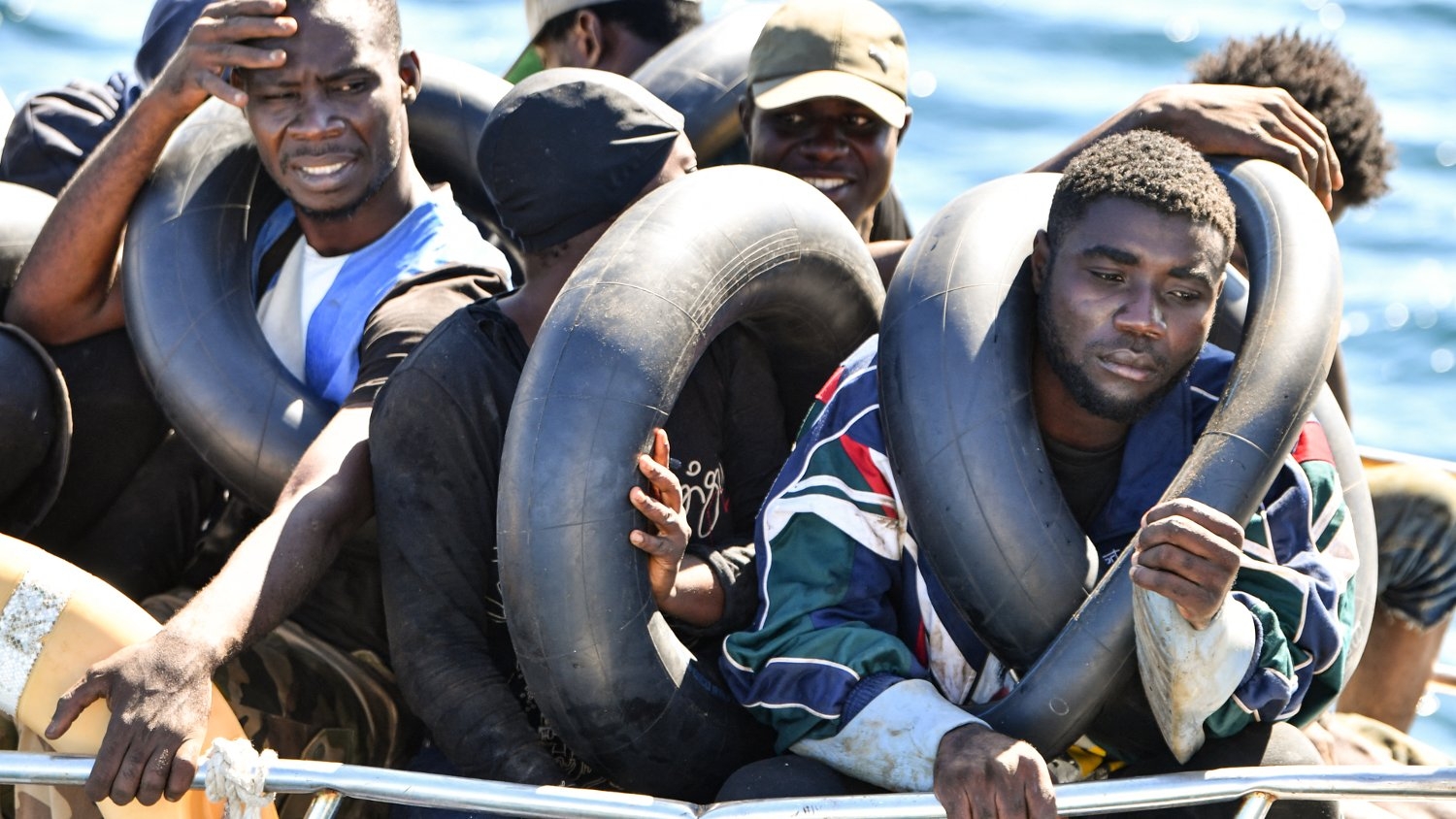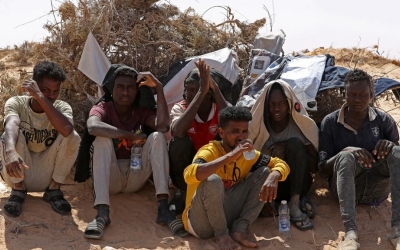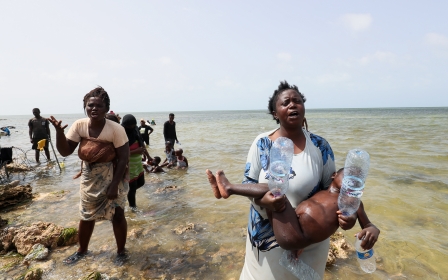Five dead as Europe-bound boat sinks off Tunisia coast

Five people from Tunisia and sub-Saharan Africa have died after a boat bound for Europe capsized off the Tunisian coast, according to a state news agency and a judicial official.
Coastguard units recovered the bodies of five people while rescuing 23 people from the sunken boat near the city of Sfax, which has been a hotspot in the Mediterranean migration crisis. Another seven people were reported missing, according to the TAP news agency.
Faouzi Masmoudi, a court spokesman in Tunisia, said that the deaths include at least one child and two women. The boat sank "less than an hour after departure", Masmoudi said, according to the AFP news agency.
Tunisia sits on a major, and deadly, migration route for people from African countries, including refugees and others looking to travel to Europe for economic opportunities. In recent months the number of people attempting to use this route has increased significantly, leading to a rise in deaths.
This summer has seen several major incidents of boats capsizing in the Mediterranean Sea, with people from north and sub-Saharan Africa on board.
New MEE newsletter: Jerusalem Dispatch
Sign up to get the latest insights and analysis on Israel-Palestine, alongside Turkey Unpacked and other MEE newsletters
The discovery on Monday comes just days after dozens of people died in a similar incident when a Europe-bound boat capsized off Tunisia's coastline.
And this past Saturday, a boat carrying 20 Tunisians sunk, leaving one infant child and a 20-year-old man dead.
According to the International Organisation for Migration, this year more than 1,800 people have either died or gone missing attempting to cross the Mediterranean via the central route that includes Tunisia.
Kais Saied's 'racist' remarks on immigration
Last month, Tunisia and the European Union signed an agreement that included tightening borders. European Commission chief Ursula von der Leyen said the EU would provide the North African country with $109m to help it curb illegal migration.
The deal comes despite reports from human rights groups and United Nations experts raising concerns about Tunisia’s alleged discriminatory treatment of sub-Saharan migrants.
Human Rights Watch interviewed 24 people in 2023, a number that included migrants, asylum seekers, and refugees. According to their reporting, 22 interviewees were victims of human rights violations at the hands of Tunisian authorities.
And according to HRW, the agreement between the EU and Tunisia did not incorporate guarantees to ensure that Tunisian officials would prohibit infringements on the rights of migrants and asylum seekers.
In July 2021, Tunisian President Kais Saied unilaterally suspended parliament and dissolved the government in a plan that was first reported by Middle East Eye.
In the years and months since, Tunisia's economy has been in a state of collapse, burdened by rampant inflation and a scarcity of essential goods.
Amid this financial crisis, Saied has gone on to attack people from sub-Saharan Africa, linking them with criminality and saying that recent waves of immigration were part of a plan to "change the demographic structure of Tunisia". His comments were widely condemned as racist.
Middle East Eye delivers independent and unrivalled coverage and analysis of the Middle East, North Africa and beyond. To learn more about republishing this content and the associated fees, please fill out this form. More about MEE can be found here.





